Seeing your pooch uncomfortable is always upsetting, particularly if it’s a pottying issue. Every dog has occasional poo problems, but one of the most unsettling for both you and your pup is constipation.
Yes — your doggo can get backed up, and it’s as unpleasant for him as it is in humans.
The good news is, you can often ease mild constipation at home, mostly with items you may already have in your pantry.
Just be sure to contact your vet before implementing any of the remedies shared below.
Without further ado, let’s face some facts about canine constipation.
Home Remedies for Dog Constipation: Key Takeaways
- Common causes for dog constipation include dehydration, anxiety, insufficient exercise, obstructions, medication side-effects, or medical issues.
- Pumpkin, probiotics, psyllium seeds, and olive oil are all additives that may be helpful for relieving a dog’s constipation.
- Owners might also consider switching to a high-fiber dog food or a wet canned food that has a higher moisture content.
- If you suspect your dog isn’t drinking enough water, a canine water fountain may help encourage your dog to intake more fluids.
How Do You Know If Your Dog Is Constipated?
Constipation is not the same thing as your dog taking forever to find a cozy spot to potty (and yes, there are some ways you can encourage your dog to poo and pee more quickly).
While that can be tiresome (especially during your late night walks), constipation is cause for concern, and your dog will exhibit a few telltale signs that he’s having trouble, including:
- Straining: A constipated pooch will spend an excessive amount of time crouched and trying to go with little to no result.
- Lack of Pooping: Dogs ideally drop doggy diamonds daily, but a sure-fire sign of a backed-up fur friend is a lack of poops for 48 hours or more.
- Strange Vocalizations: Since a build-up can be uncomfortable, your dog may be whinier and more vocal than usual or frequently signal to go outdoors when he’s constipated.
- Signs of Discomfort: If your pooch is refusing tummy rubs or moving oddly when you try to touch his abdomen, it’s a sign of a problem. This differs from emergency situations like bloating, however, that cause a swollen abdomen, retching, panting, and more. To be safe, always err on the side of caution and call your vet — especially if you have a bloat-prone breed like a Great Dane.
- Reduced Appetite / Food Refusal: With everything at a grinding halt, your typically chow-happy hound may be disinterested in food.
Vet Pro Tip
Some owners confuse the straining associated with diarrhea with the straining associated with constipation.
So, be sure to consider all of your dog’s symptoms before assuming that he’s constipated. Treating a diarrheal dog for constipation (or vice versa) can make things worse.
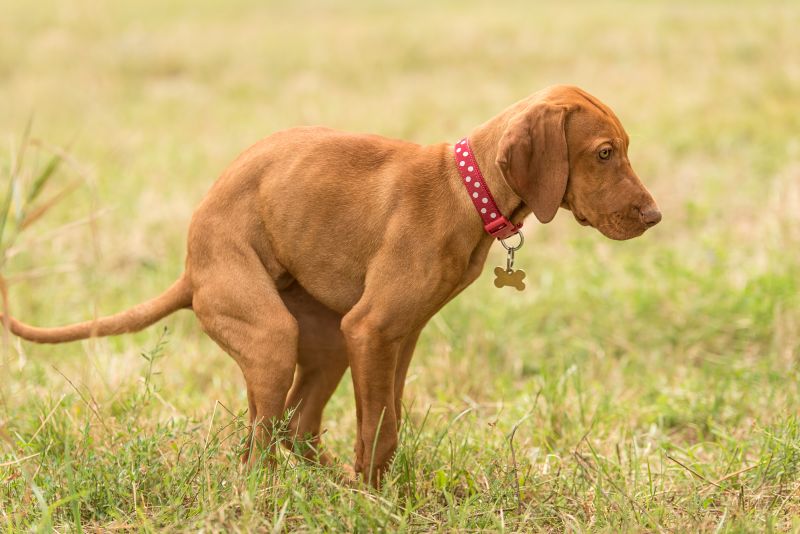
Causes of Canine Constipation
While occasional constipation is pretty normal, it’s important to know why it happens to prevent it going forward. The cause may be relatively harmless, like insufficient exercise, or it can be something more serious.
Typically, canine constipation is caused by:
- Dehydration: If your pooch isn’t staying hydrated by receiving adequate drinking water or moisture in his diet, he may get stopped up. Your dog should have access to clean water at all times. As he ages, he may need a touch of wet or canned food in his diet to keep things moving, too.
- Insufficient Exercise: A lack of movement can bring your dog’s bowels to a snail’s pace. Incorporating a daily walk is not only good for your pupper’s tummy, but it’s beneficial to his overall well-being, including mental health, weight, and joint mobility.
- Medications: Sometimes medicinal side effects can cause constipation. Always read the labels on pupper’s pills so you know what to watch for. If the problem is ongoing, consult your vet.
- Tumors: Tumors or other abnormal growths in the lower portions of the digestive tract (including the rectum or anus) can lead to constipation.
- Anxiety: Like stress diarrhea, stress constipation can rear its ugly head in a frazzled four-footer. From hiding to shaking, stress signs vary by doggo.
- Joint Issues: Dogs with joint pain or mobility issues may have a hard time “assuming the position,” making a productive poo a no-go.
- Ingestion of Hair: Hair, like any foreign body, can lead to a clog in the pupper pipeline. Some dogs like to munch on fur during grooming, while others may self-groom to the point of belly upset.
- Obstruction: Bowel obstructions are caused by your dog ingesting something he shouldn’t, like a sock, diaper, tampon, plastic, or other non-edible material. Obstructions are always an emergency and should be treated by a veterinarian immediately. Technically speaking, obstructions don’t technically cause constipation, but they’ll still prevent your pet from pooping, so it’s important to be aware of this possibility.
- Enlarged Prostate: In addition to restricting urine flow, an enlarged prostate can put pressure on the colon, causing constipation. If your male dog is squatting or lifting his leg for an extended amount of time with little sprinkle, a vet appointment is a must.
- Trauma / Injury: Any trauma to the abdomen can damage your pooch’s digestive tract and should be treated by a veterinarian to rule out internal bleeding and other potential complications.
- Rectal Abscesses: Swollen anal glands make bathroom trips painful for your pooch. The first sign of trouble is typically butt-scooting across the ground, but if left untreated, abscesses may form that can burst, leading to bloody discharge. At the first signs of scooting, it’s best to call your vet.
- Spinal Injury or Pain: Severe pain in the lower spine and pinched nerves can slow the progress of material through your dog’s digestive tract or make it difficult for her to push and eliminate properly.
- Megacolon — Megacolon is a condition in which a dog’s colon is abnormally large and flaccid, which makes it difficult for a dog to eliminate properly. It can occur in response to chronic constipation, but it also seems to be a congenital condition that can afflict some dogs from birth.
- Other Medical Conditions: Several neurological, digestive, and hormonal diseases can affect your dog’s bathroom regularity. If constipation is ongoing, something larger like these illnesses may be the culprit.
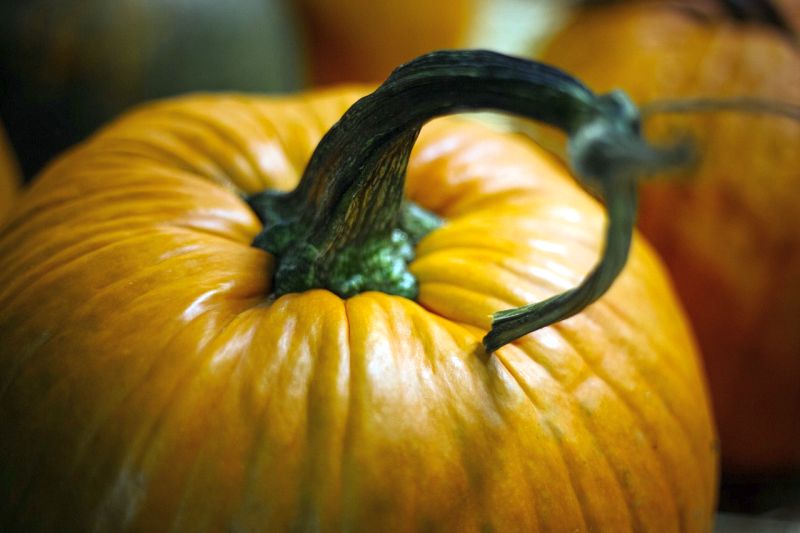
8 Best Home Remedies for Dog Constipation
If it’s a bout of occasional canine constipation, home treatment is relatively simple to get the poop chute going again. Just remember to contact your vet before administering any home remedy.
A few easy fixes include:
- Exercise: Beef up your fur friend’s fitness regimen to help loosen up the congestion down there. Going for a walk or jog can stimulate his digestive system to start moving again.
- Increase water intake: Encouraging your dog to drink more water will help break up the belly bind. Besides keeping his regular water bowl full, you could try getting your pooch a doggy water fountain, which many dogs find more enticing than flat, still water. Adding a touch of broth to your dog’s water can make it more appealing, too.
- Olive oil: A small amount of olive oil in your doggo’s dinner can often do the trick. But don’t overdo it! Too much olive oil will cause diarrhea.
- Canned pumpkin: Pure canned pumpkin puree is a great tummy trouble tonic, which can actually help ease constipation or diarrhea. But make sure you don’t mistakenly purchase pumpkin pie filling. The added spices and sugars aren’t good for your pooch.
- Higher fiber dog food: Some dogs, such as older pooches, may require a high fiber diet to stay regular, as fiber keeps the digestive system up and running. Too much fiber can lead to constipation or worsen an ongoing issue, so consult your vet before making the switch. You may also want to consider switching to high-fiber dog treats.
- Probiotic supplements: Dog probiotics give a little boost to your pup’s gut health. These supplements help restore a natural balance to the belly which can aid in regularity. While you’re at it, an over-the-counter dog stool softener can help as well.
- Psyllium seed supplements: Like humans, psyllium supplements can be used to treat constipation in dogs. Stick with dog-friendly formulas and always read labels to avoid artificial sweeteners and other dangerous additives. Because psyllium is high in fiber, follow dosages exactly and offer water to avoid worsening constipation or potentially causing an obstruction.
- Canned food: Incorporating more canned food into your doggo’s diet adds more moisture, aiding in easing constipation. As with any food change, the key is slow and steady. You don’t want to switch cold turkey, which can lead to tummy trouble.
When using a home-based remedy, make sure you’re around to offer potty breaks as needed, and always check the labels!
When Should You Worry About Dog Constipation?
Occasional constipation in dogs happens, but that doesn’t mean it’s always harmless. If your dog is exhibiting the following, call your vet right away:
- Vomiting
- Lethargy
- Anal discharge
- Swollen abdomen
- Panting
- Signs of acute pain like sudden aggression or refusal to move
- Recurrent constipation
Trust your paw parent instincts. You know your dog, and if something seems more concerning than a bout of sour stomach, you should make a veterinarian appointment.
***
Have you tried any of the home remedies we discussed? Let us know in the comments!
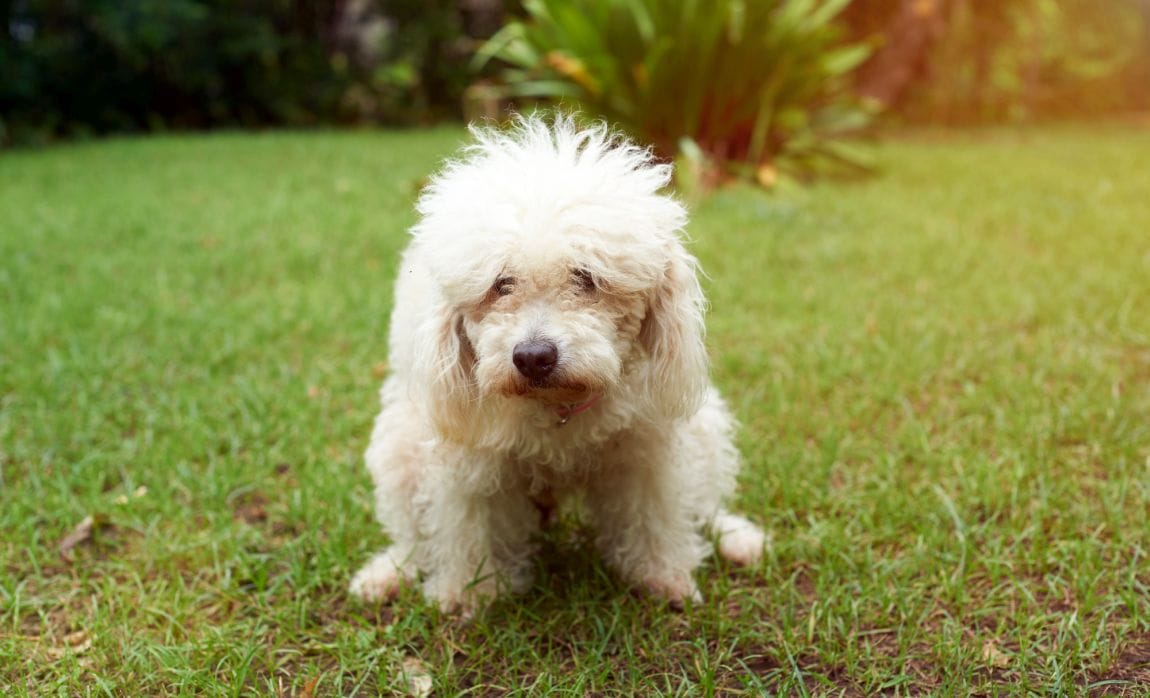





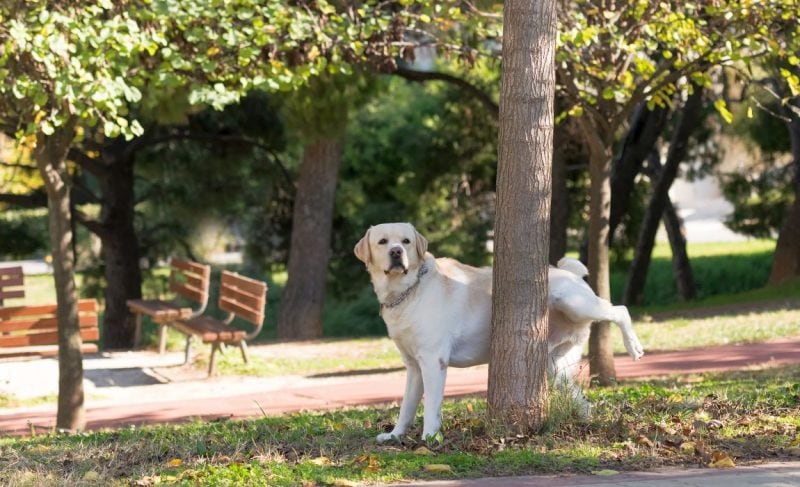
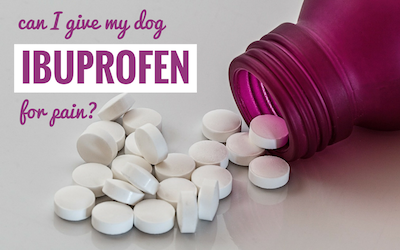
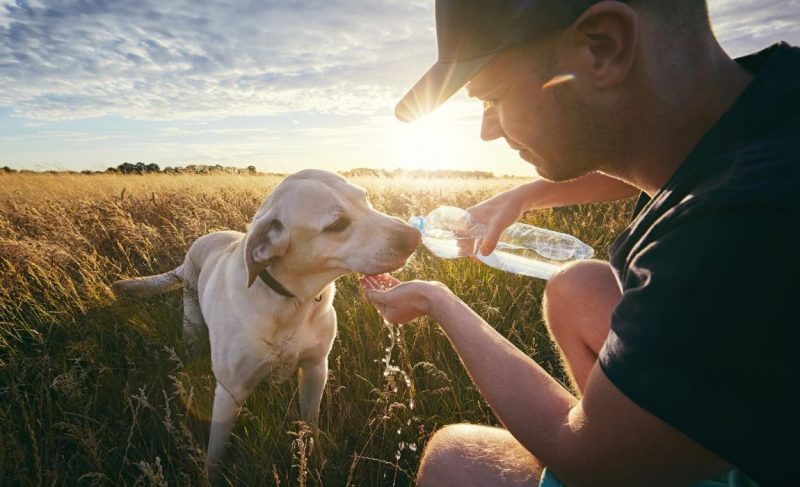
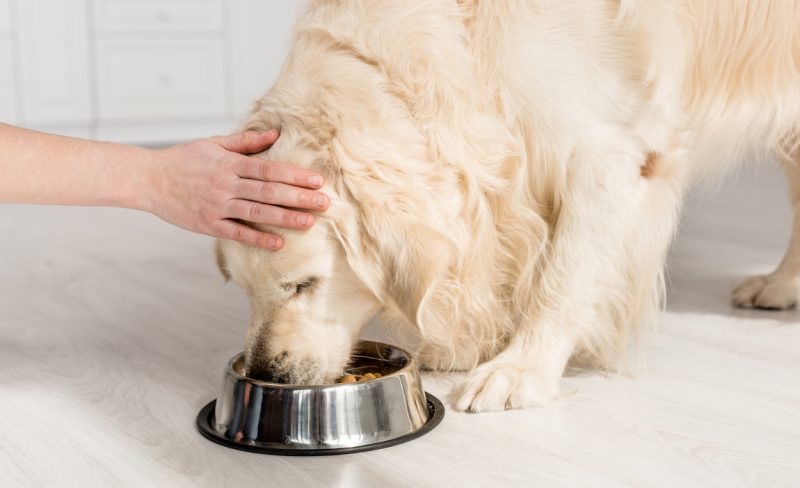
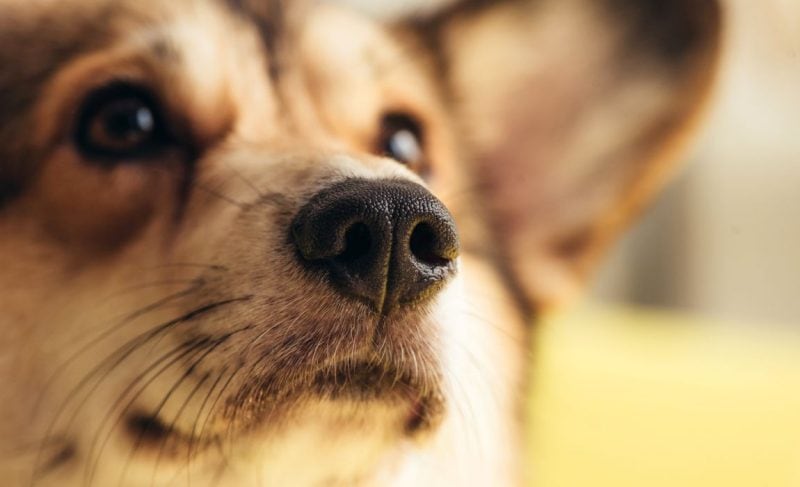


Leave a Comment